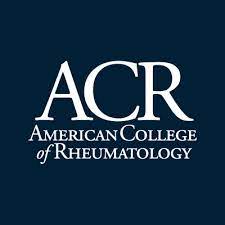Article
ACR Updates COVID-19 Vaccine Guidance to Include Fourth Doses Recommendations
Author(s):
The fifth update from the American College of Rheumatology supports fourth doses of the vaccine for high-risk rheumatic disease patients.

The American College of Rheumatology (ACR) just announced an updated version of its COVID-19 Vaccine Clinical Guidance for Patients with Rheumatic and Musculoskeletal Diseases.
The fifth update includes support for supplemental and booster doses, recommendations for coordinating the timing of the injection and immunomodulatory medication use, and revised guidance for pre- and post-exposure prophylaxis with monoclonal antibody treatment.
All patients with rheumatic disease are recommended to get a booster dose after their primary vaccine series, as the CDC has recommended. For patients who are on immunosuppressant treatments, a third mRNA vaccine dose should be taken as part of their primary vaccination series prior to their booster, for a total of 4 doses (outlined in table 3 of the guidance).
These recommendations apply to patients, regardless of whether they’ve had a previous natural COVID-19 infection.
“It remains important for rheumatology providers to assess the vaccination status of all patients with rheumatic diseases,” Jeffrey Curtis, MD, MS, MPH, Chair of the ACR COVID-19 Vaccine Guidance Task Force, said in a statement.
“Initially, it might have been acceptable to just ask a patient if they have been vaccinated,” he continued. “There is now more nuance with supplemental and booster dose recommendations that should prompt us to ask patients not only whether they have been vaccinated, but with what, how many times, and how recently.”
Currently, the CDC recommends third mRNA doses be taken at least 28 days after the first 2 doses. As for booster doses, 5 months after the completion of the primary vaccination series is the guideline.
It’s ideal for patients to take the same mRNA vaccine for their third dose, but if the initial brand is unknown or unavailable either may be used. There is no approved additional shot for the Johnson & Johnson (J&J) vaccine at this time. However, an mRNA booster dose is recommended at least 2 months following the primary J&J shot.
Pre-exposure and post-exposure monoclonal antibody prophylaxis for high-risk autoimmune and inflammatory rheumatic disease patients is still supported by the guidance, when and if it’s available for use.
However, because Omicron is the dominant strain circulating the US, the US Food and Drug Administration (FDA) has limited the use of certain monoclonal antibody therapies that have underperformed against the current variant.
Neither bamlanivimab and etesevimab (administered together) nor casirivimab and imdevimab, are licensed nor available under emergency use authorization (EUA).
The ACR website has the updated recommendations and guidelines. Statements that have been revised or added in the most current version of the document will be in bold. There’s also a summary of the changes in the Appendix Table.
The Supplemental Table provides an important set of guiding principles, foundational assumptions and limitations.
According to the ACR statement, a peer-reviewed manuscript with additional details on the clinical studies, data, and discussion points that influenced the recommendations has been submitted for publication to Arthritis & Rheumatology, It will be made available on the ACR website once published.





